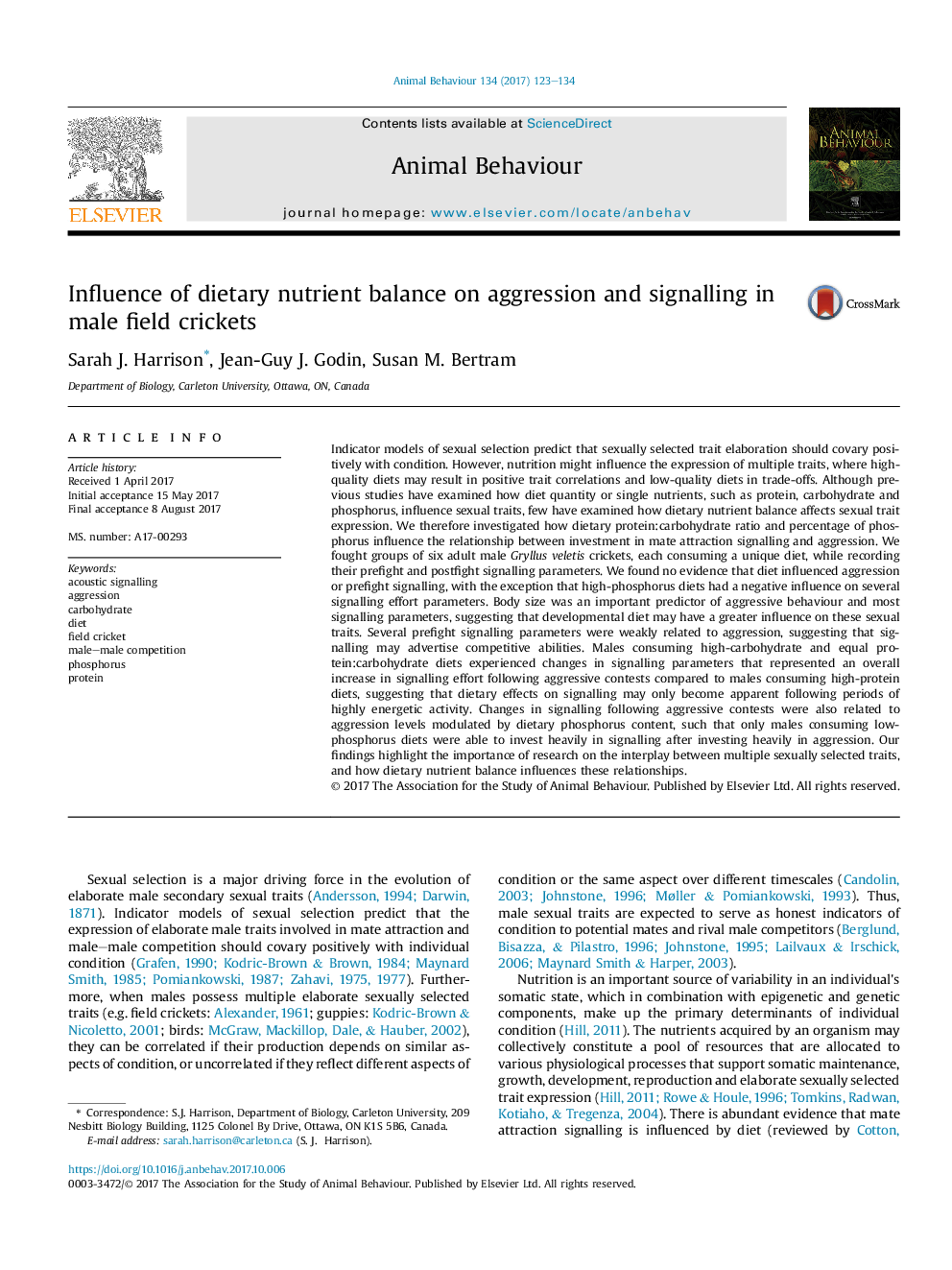ترجمه فارسی عنوان مقاله
تأثیر تعادل مواد مغذی رژیم غذایی بر پرخاشگری و سیگنالینگ در کریکت های مردانه
عنوان انگلیسی
Influence of dietary nutrient balance on aggression and signalling in male field crickets
| کد مقاله | سال انتشار | تعداد صفحات مقاله انگلیسی |
|---|---|---|
| 114339 | 2017 | 12 صفحه PDF |
منبع

Publisher : Elsevier - Science Direct (الزویر - ساینس دایرکت)
Journal : Animal Behaviour, Volume 134, December 2017, Pages 123-134
ترجمه کلمات کلیدی
سیگنالینگ صوتی تجاوز کربوهیدرات رژیم غذایی، کریکت زمین، مردانه رقابت مردانه، فسفر، پروتئین،
کلمات کلیدی انگلیسی
acoustic signalling; aggression; carbohydrate; diet; field cricket; maleâmale competition; phosphorus; protein;

